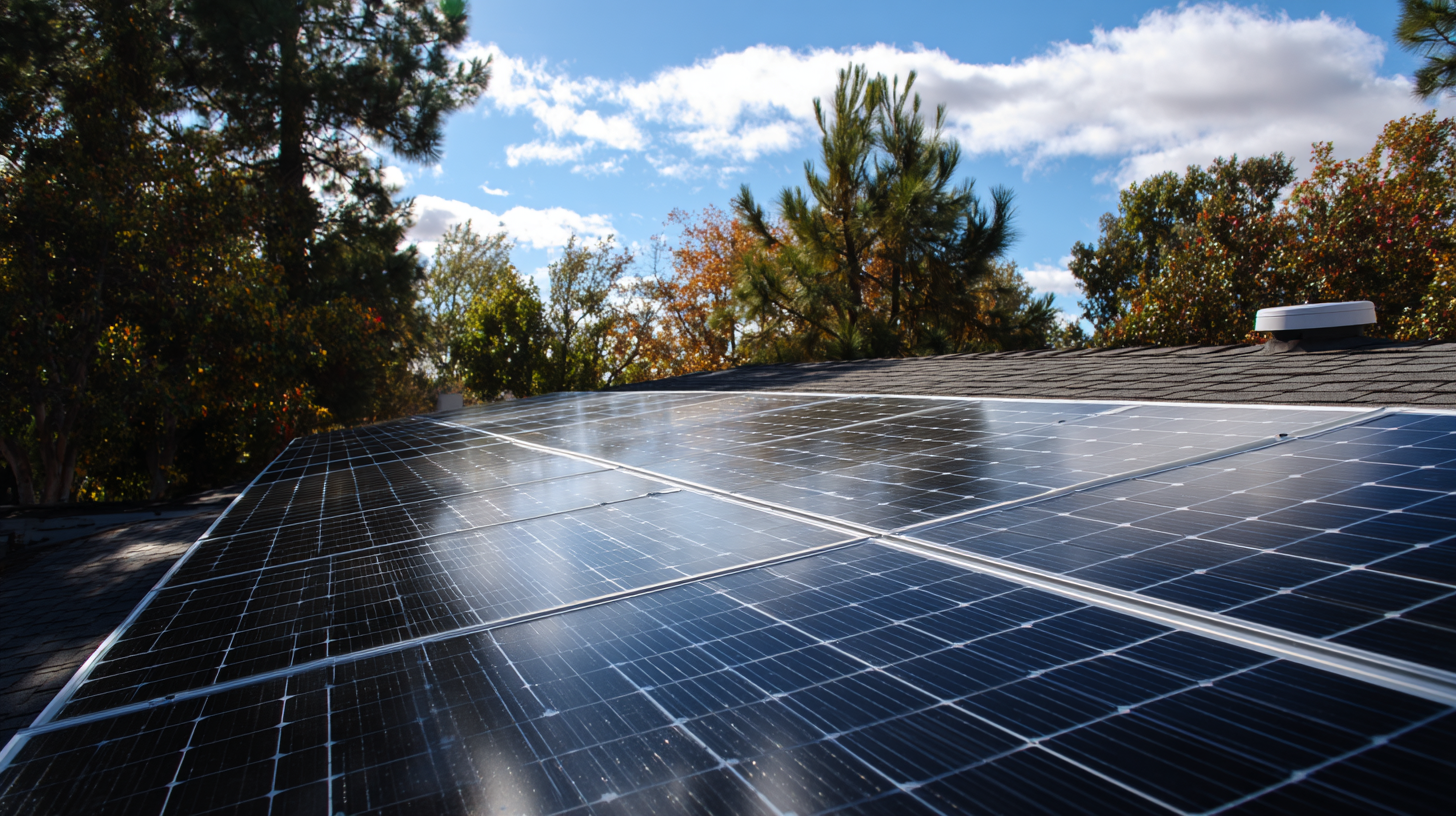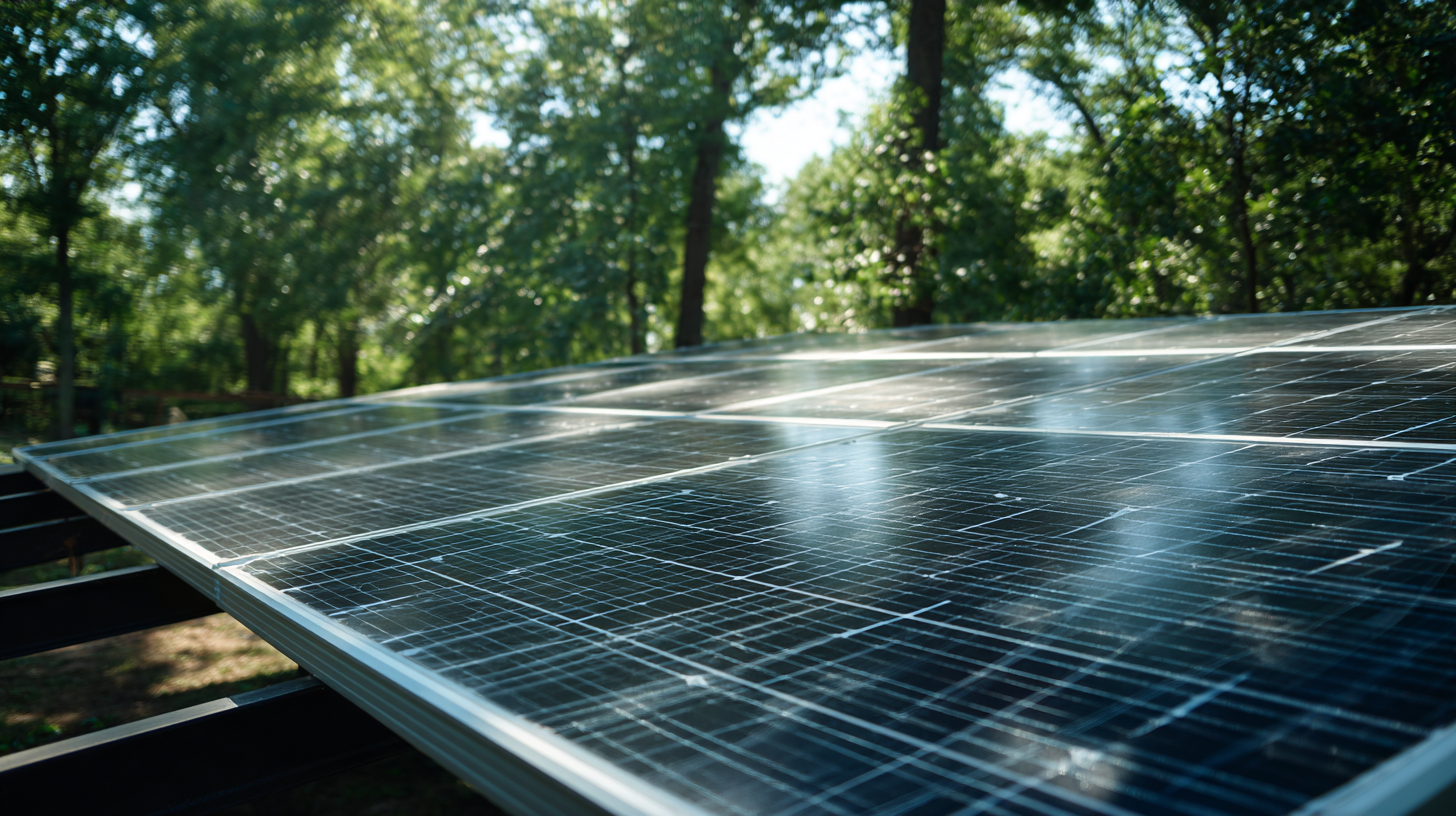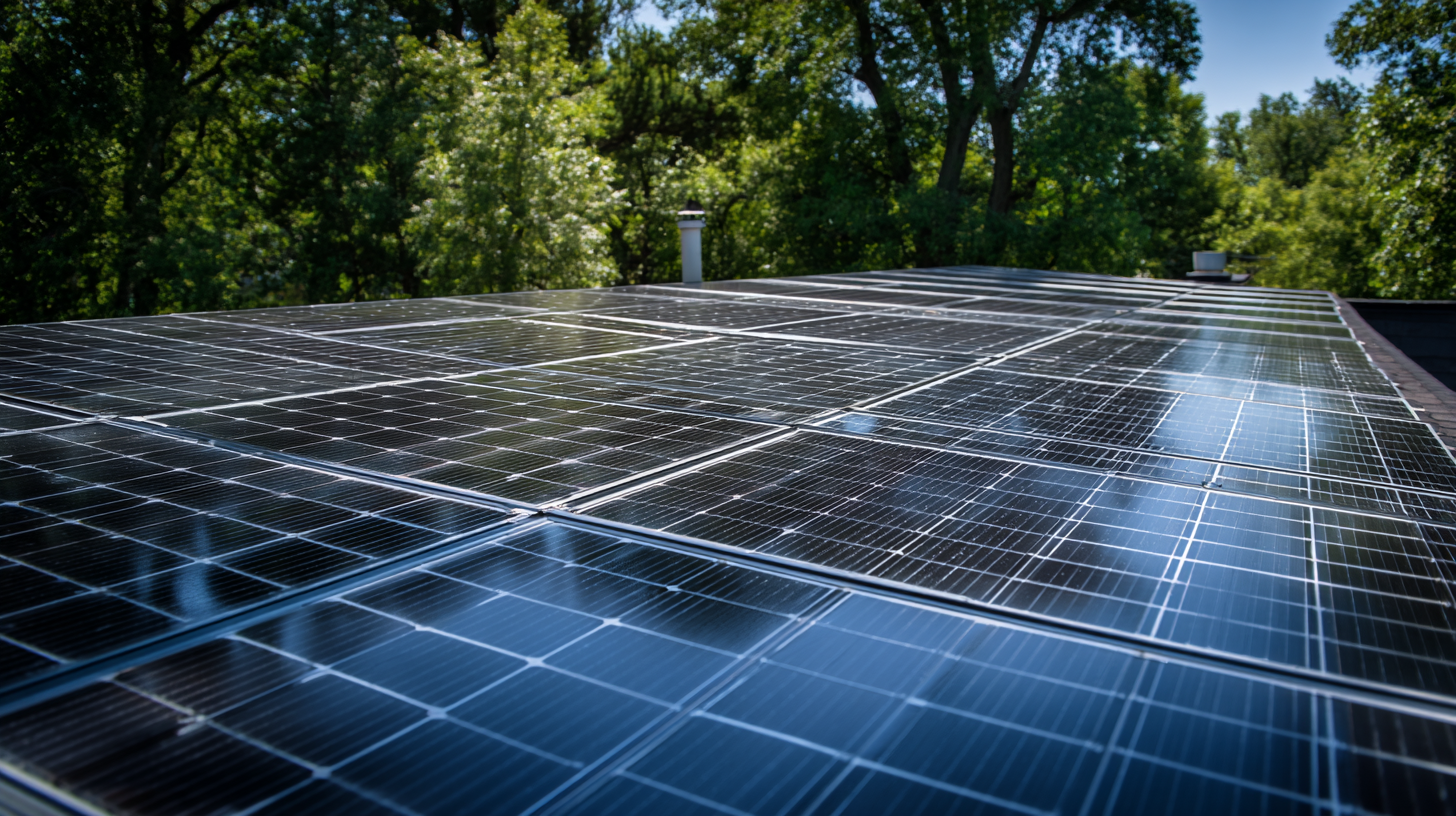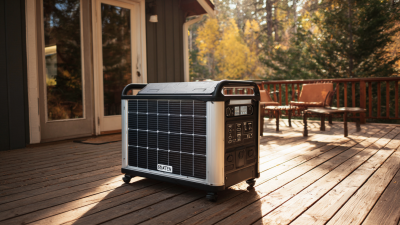MH Energy Your Better Solar and Energy Partner
MH Energy Your Better Solar and Energy Partner
In today's world, the shift towards renewable energy sources has become increasingly important, particularly as homeowners seek to reduce their energy bills and embrace sustainable practices. Among the various options available, solar panels for home energy savings stand out as a highly effective solution. However, with the wide array of solar panel types, brands, and features on the market, making the right choice can feel overwhelming. This blog aims to guide you through the essential factors to consider when selecting the best solar panels for home use, ensuring you make an informed decision that maximizes savings and contributes positively to the environment. By understanding the different technologies, efficiency ratings, and installation processes, you'll be well-equipped to harness the power of solar energy effectively and sustainably.

When considering solar panels for your home, understanding your energy needs and usage patterns is essential for making an informed choice. Start by reviewing your energy bills from the past year to identify trends in consumption. Take note of peak usage times, and consider any seasonal variations. This analysis will help you determine the size and capacity of the solar system you need to meet your energy demands.
**Tip 1:** Use energy monitoring tools or smart meters to track your energy consumption in real-time. These tools can provide insights into which appliances consume the most energy and when, allowing you to adjust your habits or prioritize which appliances to power with solar energy.
Once you have a clear picture of your energy usage, consider your roof space and orientation. Solar panels perform best when they receive ample sunlight, so assess the location of your home throughout the day. Factors like shading from nearby trees or buildings can impact efficiency.
**Tip 2:** Consult with a solar advisor to analyze your roof conditions and energy needs. They can help design a system tailored to your specific requirements, ensuring you maximize both energy savings and the benefits of solar technology.
When it comes to choosing the best solar panels for home energy savings, understanding the different types of solar panel technologies is crucial. The three primary types of solar panels available today are monocrystalline, polycrystalline, and thin-film.
 Monocrystalline panels, made from single-crystal silicon, are known for their high efficiency and longevity, typically offering 15-22% efficiency rates. According to the National Renewable Energy Laboratory, these panels can produce more energy in smaller spaces compared to their counterparts.
Monocrystalline panels, made from single-crystal silicon, are known for their high efficiency and longevity, typically offering 15-22% efficiency rates. According to the National Renewable Energy Laboratory, these panels can produce more energy in smaller spaces compared to their counterparts.
Polycrystalline panels, formed from multiple silicon crystals, are generally more affordable but less efficient, with efficiency ratings ranging from 13-16%. While they require more roof space for installation, they can still be a great option for homeowners with larger roofs or tighter budgets. In contrast, thin-film solar panels, which are made from a variety of materials, are the least efficient, averaging between 10-12% efficiency. However, they offer flexibility and lightweight advantages, making them suitable for unconventional installations.
Investing in solar technology is an informed decision backed by data; a study from the International Energy Agency revealed that solar power could soon become the largest source of electricity generation by 2050. Homeowners should weigh these performance metrics against their energy needs and budget, ensuring they make a choice that will maximize savings and efficiency over time.
When comparing solar panel brands, several key factors can significantly influence your decision. First and foremost, efficiency ratings are crucial. Higher efficiency means more power generated from the same amount of sunlight, which is essential for maximizing your energy savings. Look for panels with at least 18-20% efficiency; this indicates that the brand has invested in technology to enhance performance. Moreover, consider the warranty and durability of the panels. Reputable brands typically offer warranties of 25 years or more, which reflects their confidence in the longevity and reliability of their products.
Another factor to assess is the company's reputation and customer service. Research customer reviews and seek testimonials to gauge the levels of satisfaction from previous buyers. A brand known for responsive customer support can save you time and hassle in case of installation issues or maintenance down the line. Additionally, explore the range of products each brand offers. Some companies might have specific panels designed for different needs, from residential installations to more robust commercial systems. By taking a holistic view of these factors, you can make a well-informed choice that aligns with your energy savings goals.
| Factor | Description | Importance Level | Typical Range |
|---|---|---|---|
| Efficiency | The percentage of sunlight converted into usable electricity | High | 15% - 22% |
| Warranty | Duration and coverage of the manufacturer's warranty | High | 10 - 25 years |
| Temperature Coefficient | Performance drop in efficiency as temperature rises | Medium | -0.3% to -0.5%/°C |
| Cost | Total price of solar panels per watt | High | $2.50 - $3.00/Watt |
| Durability | Ability to withstand harsh weather conditions | Medium | IP67 and above |
| Aesthetics | Visual appearance of solar panels on the roof | Low | Varies by model |
When considering solar panels for your home, it's crucial to assess the costs, incentives, and long-term savings potential. Start by researching the total installation costs, including equipment and labor. Comparing quotes from different solar providers can help you find the best deal. Don't forget to factor in maintenance costs, which, while typically low, can impact overall savings over time.
Take advantage of government incentives and rebates, which can significantly lower your upfront investment. Many states offer tax credits or rebates for solar installations, and federal programs may also provide financial assistance. Evaluating these options can enhance your savings and improve the return on investment for your solar panels.
It's also important to project your long-term savings. Analyze your current energy bills and how much you typically spend on electricity. Installing solar panels can reduce these costs substantially, often by 50% or more. Additionally, consider the energy rates in your area and any potential increases in utility prices over the coming years. This forward-looking perspective will help you make a well-informed decision that maximizes your financial benefits.
When considering solar panel installation for your home, understanding the installation process and finding certified installers is crucial. Certified installers possess the necessary training and credentials to ensure that the installation meets industry standards and local regulations. It's advisable to seek recommendations from friends or family who have already made the switch to solar energy. Online reviews and ratings can also offer insights into the reliability and quality of an installer’s work.
Once you’ve shortlisted potential installers, it’s essential to inquire about their experience with specific types of solar panels and their installation techniques. A competent installer should be able to explain the entire process clearly, including site assessment, permits, and the timeline for installation. Additionally, they should provide a detailed breakdown of costs, potential savings, and any warranties on both the panels and the installation work. Ensuring that your installer is familiar with local codes and regulations will help avoid any legal complications in the future, ensuring a smooth transition to solar energy for your home.







